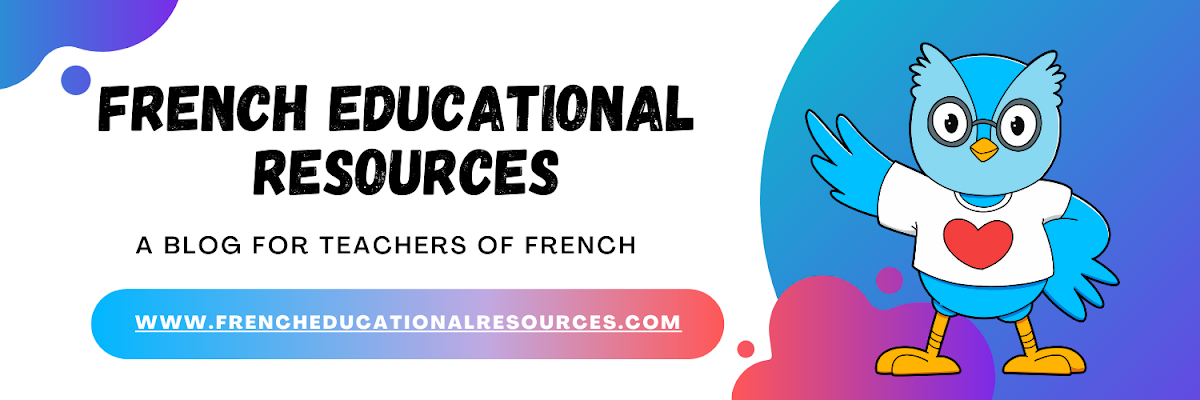I get asked by a lot of people about how to start learning French. What are the secrets, what are the tips of the trade. The hardest part about starting a new language is knowing where to... start! The task of taking on a new skill, such as talking in a new language, is nothing less than onerous. Or so you thought.
So this blog is for you, adult language learners. And just for the repeated record, yes you can learn a language to fluency at any age - I get tired of explaining this to people. For now, just understand that it's a big fat lie when you hear that adults can't pick up second language fluency.
Here, i'll lay out some different ways that I advise adults to learn new languages.
STEP 1: The best way to start is to work out why you wish to start learning French.
Learner goal A) I want to learn French because I want to speak with people, and communicate in a different language. This is either because I want to travel to a French speaking country or because I'm interested to talk to people who speak a different language. Or maybe both! (Lucky you!)
Maybe you need it to increase job prospects or to connect with your new French partner (This is a common situation, so many Frenchies in Australia!). Maybe you're a retiree who just wants to work the brain, and practice a new and interesting hobby.
Learner goal B) I'm mainly interested in the logistics behind language and language learning. I love learning about linguistics, and how people can express themselves in languages other than English.
Maybe you feel as though Australia is such a multilingual country that it's time you had some perspective on how people might think in another language.
.... So what's your reason? (Comment below if you wish to share!) I can help you decide whether you're a learner type (A) or a learner type (B). Then move onto the next step to get started ASAP!
STEP 2: Start to learn with both language 'input' and 'output'
Let me start by expressing one main rule of language learning. You need both language 'input' and language 'output' to truly learn any language. What this means is that you need to be learning the language by ways in which most people would consider
hearing and
listening to a language, and also you need to be using the language through
speaking and
writing (optional). You constantly need a mix of all these passive and active learning methods at
all stages of the language learning to progress. Even right from the get-go!
Now let's look at some different ways that you can learn French in Australia:
Learner goal A) Coucou! You're predominately wanting to learn to SPEAK the language!
We are so lucky in Australia to have so many native French speakers - time to take advantage of the situation!
 |
| Meetup language group |
Social approach -
Use the combination of a group class scenario along with meetup social groups. There are many organisations and small businesses to choose from (see below for links). Meetup groups are generally a mixture of native speakers and learners of French, if you know which groups to choose from.
This mixture of speaking and learning quickly from natives and advanced learners gives you the opportunity to use the language straight away, and quickly adapt the language based on your initial mistakes. It's one of the best ways to learn a language, in the fluent capacity, but can also be the most daunting as you are forced to drop your guard quickly and embrace your language faux pas.
Solo approach -
Use a combination of one-on-one tutoring with a native French speaker, and join some bi-monthly small French conversation groups. I advise these types of people
not to join a group language class, as you will lose yourself within the group and then become way too nervous to open your mouth to speak (which is the opposite to your goal!) Build some confidence within small groups and with native speakers, and you will truly feel yourself flourish in the language. Sometimes you might also like to be immersed in culture by yourself, so attend French
events that occur often in your city or visit French
cafés and restaurants, and soak in the Frenchness.
Learner goal B) Bonjour, salut, coucou, bienvenue to linguistics. You're predominately wanting to learn the FORM and FUNCTION of the language.
Grammar approach -
I typically find that this group is really in to language apps. Start to delve into apps such as
DuoLingo and
iTalki on your phone and laptop for some quick knowledge. As group French classes are generally grammar-based, you might also enjoy interacting with people with similar interests in this setting. Hard-copy grammar books that I would recommend are
Schaum's Grammar and
Easy French Step-by-Step (free copy through link). Both books contain heavy grammar exercises and are in-depth guides to form.
If you're heading back to uni or about to start, the French language courses at most good universities will be enough to tickle your grammar desires.
Allez, c'est parti! We all have to just jump in and start learning!
Links to learning French in Melbourne:
Please comment or email if you need some help to find what's best for you.
Native French tutors -
Gumtree (best way to find a local native and on the cheap)
The French Workshop
VoulezVouloz
Alliance Française de Melbourne
Group classes -
Lyceum Language Centre
Alliance Française
Cosmopoli' French
CAE
French Journey
InLanguage Boutique
Meetups -
Meetup.com
MundoLingo
Language Connection
Conversation groups -
My French Life
Alliance Française
Ask your local French restaurants and cafés as many hold monthly conversation groups
Please comment or email if you need some help to find what's best for you. Bon courage!
























